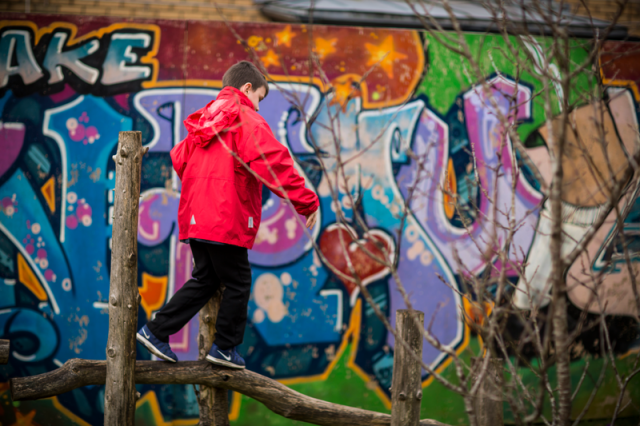2023-06-21
Andrea Gruber: No Bad Kid – behaviour management programme

Children with behavioural problems are a horizontal group at risk of not graduating from the level of education that fits their general abilities. Teachers often find it difficult to work with them, and it is quite common that they only apply a symptomatic approach, without looking into the roots of disturbing behaviour. This training and mentoring programme offers a solution by working with the children (and their family that is usually the root of the problems) and school staff.
Disturbing behaviour has not been considered a special education need, it is considered differently by different professions, so there has been little to no multi-professional team support or training for teachers. Schools that have been part of the programme reported that teachers lack both theoretical and practical knowledge to cope with these challenges in the classroom on a daily basis. After implementing the programme for 2-3 school years positive effects are clearly reported by both students and teachers.
No Bad Kid is a complex institutional development programme aiming at implementing a holistic behaviour-changing educational model. The model is based on the Re-ED philosophy (Re-EDucation of Emotionally Disturbed Children). It consists of set of 12 principles that provide guidance on institutional evaluation, basic trainings to change mindsets, in-depth training in the programme methodology, mentoring, supervision, refreshment trainings and peer support, as well as working with the children and their families directly. The main components of the model are the principles and attitudes, the methodology toolkit, the individualization of services and methods based on the child’s needs, the institutional framework, and the supporting broader environment.
The main challenge is for schools to have a long-term, 4-5 year commitment to the programme, this needs the full commitment of their leadership. It is becoming a challenge in the country context to establish and maintain NGO-school cooperation. Teacher work overload also needs to be addressed when organising activities.
The percentage of challenging children vary from area to area. Schools that have realised they need help, mostly as a last resort, often have a high percentage of the school population showing disturbing behaviour. So far, the foundation has reached out to about 10-12 thousand children and the ratio of affected children is about 30% in this population.
Most of the challenging students in schools implementing the programme fall into at least one of these categories:
-
has an imprisoned parent
-
there is a history of drug abuse or alcoholism in the family
-
there is bullying and physical abuse in the family
-
they are in foster care
-
their family situation is unclear for some reason
-
one of their parents died
-
generational unemployment in the family,
-
low socio-economic status or extreme poverty
-
families with multiple problems of the above
The programme has been implemented by different schools, mostly primary, most of them in deprived areas of larger towns.
It is a multi-stage programme of the following elements:
-
Initial phase: school visit, initial planning with the school head, information session for the teachers
-
Basic training to change mindsets – knowledge about trauma and basics of Re-EDucation
-
Developing a behaviour management system locally – training, development by the school team, introduction to the whole school
-
Implementation and regular coaching and supervision from the first school year
-
Learning in groups and team building training
-
Crisis intervention training
-
Refresher trainings
-
Creating supportive institutional structures and processes
-
Visiting other schools implementing the programme, exchange of experiences
-
Training family liaison staff
-
Experiential education training
-
Youth leadership training







